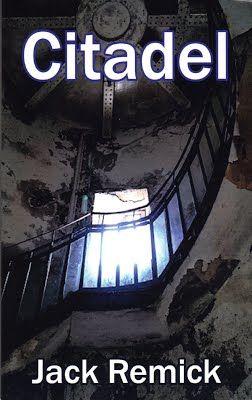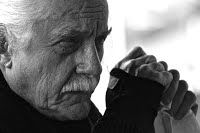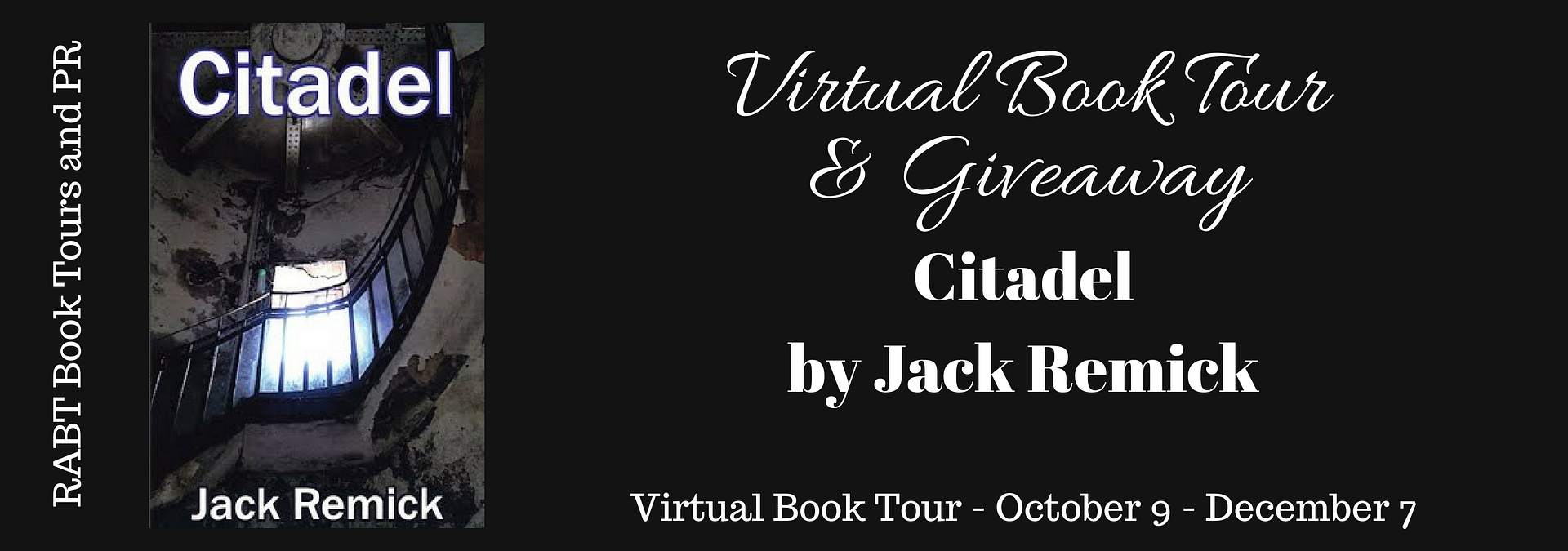
Women’s literary fiction
Publisher: Quartet Global Books
Irven DeVore, an evolutionary biologist, writes that "Males are a breeding experiment run by females." What if, in fact, women ran everything? What if women rejected the culture of rape and violence to take control of their lives in the safety of the Citadels? What if women could exist without males? CITADEL is a metafictional, apocalyptic story braided into a contemporary post-lesbian novel built on genetics.
Advance Praise
"I loved the book and I'm suggesting it to all the writers, editors and women I know as a must read. You blew me away... the book drew me in completely... great experience!
I'm not sure how you managed to come up with this... let alone research it... a story usually follows one or two Characters... I found myself following the writer, the editor, the publisher, not to mention the Characters in the book... and never got lost, never ended up wondering who someone was or why they did that? I read the book in short spurts and longer chunks depending on opportunity... but never had a problem of falling back into the story... you had me from page one to the end. Great job" -- Wally Lane, filmmaker, screenwriter.
Interview
Is There a Message in Your Novel That You Want
Readers to Grasp?
Yes.
More than anything, I want readers to see what the world would look like if
women ran it. Irven DeVore, an evolutionary biologist, writes that “males are a
breeding experiment run by females.” That insight opens up huge gaps in the
notion that the white, Alpha male is somehow a privileged being just because he
can carry an AR 15 and tattoo a swastika on his forehead. I want the female readers
to shed their fear and take on the world. In short—to resist. I want the female
readers to understand that they don’t need the Y chromosome to be entire and
intact. In Citadel, I incorporate a scientific concept called
ICNI—Intracytoplasmic Nuclear Injection. This is a process whereby women can
become pregnant without the 23 chromosomes on the Y. That idea itself is
terrifying to men but can give women some comfort in knowing that if they
reject the Y, they can still live full, rich lives with love and caring free of
the horrors the Y chromosome, as it’s engendered in the blood-thirsty male, unleashes
on the world. There is a scene in Citadel where the Daughters (all the female
characters in Citadel are Daughters because of the genetic truth that all cells
are daughter cells) make an excursion into the residual male world where they
discover men who live like women once lived, and they are horrified.
Is there anything you find particularly
challenging in your writing?
When
I look at Citadel now, I see some major challenges to male readers. I don’t
expect many male readers because of the nature of the novel. In Citadel, there
is a section called The Focus Group. In that section, the women react to their
readings of the pre-publication novel and their reactions are as close as I
come to actual realism—which I do not like at all because it limits our minds
and our story telling. In the Focus Group, several of the women readers report
back that they know exactly what the author is getting at because, “that is my
story,” they say. “It’s like the author is reading my mind. Has she been raped?
I know she has to have been raped.” When
men read Citadel, and they come to the Focus Group, there are some powerful
reactions because the finger points directly at them and they feel the terror
that their own white male privilege gives them.
How many books have you written and which is your
favorite?
I
have written twenty books. These include novels, poetry, short stories,
screenplays, and non-fiction. Asking me which of those works is my favorite is
like asking which of my eyes is my favorite. Impossible to answer the question
because each of my novels approaches the human condition from a different
angle. Citadel looks at a world where women control everything; Gabriela and
The Widow takes on the question of being a female immigrant. Lemon Custard asks
what happens to a young mother who abandons her children. Blood tackles the
prison system and its insanity while The Deification shows us the second Beat
Generation in action as the main character journeys to San Francisco on a quest
to become a poet. Valley Boy works a young Okie’s life from field hand to
college student. Because each of the novels puts some aspect of the American
experience under scrutiny, I think that an overview of the novels, and the
poetry, suggest something about the culture we live in. I am an American writer
exploring the peculiar reality of being a writer in a society that does not
really value writers.
If You had the chance to cast your main character
from Hollywood
Tough question. The Hollywood/Indie
world is in such flux that even were I to suggest an actor, by the time the
script came online, that person would probably already be out of the frame.
When did you begin writing?
Serious
writing didn’t begin until I worked with Natalie Goldberg a few times. Until
then, I was lost in a kind of ultra-sophisticated wasteland without vision or
form. After I discovered timed writing, what NG calls “writing practice”, my
vision changed. As a result, I found a way into fiction that had been denied to
me before. Following my mind, as Goldberg says, led me to a deeper
understanding of what writing is all about—freeing the inner vision from the
internal editor. Self-criticism and self-loathing are these gigantic roadblocks
that have to be overcome if the writer is to find the singular path to
creativity. For me, the confluence of NG’s timed writing and some time spent
with a very enlightened Jungian psychologist allowed me to quit writing the
same story over and over and to branch out into a world of possible universes.
Each work grows out of the previous one by adding technique, ideas, and
organized research to ride along with the creative vision. For me, I can say that
everything after Blood and leading up to Citadel is a prelude or a pretext or a
practice. Only when the writer finds a way to put the Ego aside, does the
vision complete itself. This is a Zen/Buddhist concept that finds workability
in the real world if you, the writer, pay attention. Attentiveness is primary
if you are to understand that in each story, there are really three: Story One
is the story your Ego wants credit for; Story Two is the story that begs, even
demands that you write it; Story Three is the story your readers want you to
write. If you write Story Three, you are a slave to taste, tradition and a
victim of expectation. That leaves Story Two as the real writing. The deep
writing. The writing that takes you out of the Ego and into another world. For
me, that Story is Citadel.
How long did it take to complete your first book?
There
are two questions here: the first book and the first published book. My first
published novel is called The Stolen House. It grew out of my early writing in
which experimentation was very big. I wrote it at a time when the underground
magazines were in full bloom. There were small press magazines all over the
world hungry for new material that didn’t pay homage to what had gone before.
It was a time of the great freedom seekers and the time of the early feminist
presses looking beyond the patriarchy for new ideas and expressions. Following
the publication of The Stolen House, I wrote many novels that are still on my
writing room shelf. The next book, one that I spent years on, is called
Terminal Weird. It is a book of short stories. Later, I co-wrote The Weekend
Novelist Writes a Mystery—my first non-fiction success—with Robert J. Ray. That
began a long and productive association with Ray and led finally to the series
of novels that Catherine Treadgold at Coffeetown Press published—Blood;
Gabriela and The Widow: The California Quartet.
Did you have an author who inspired you to become
a writer?
This
is a difficult question to answer because the exact moment I decided to write
something beyond letters and graffiti is still a mystery. I do remember reading
as far afield as I could—in Russian, French, Spanish, Italian—as if knowing
what was going on in the minds of other writers was very important. So often I
see writers taken in by the mind of a successful author and using that either
as a model for their own early work or imitating it in a betrayal of their own
beautiful and possible creations. In the Zen world, the saying is well
known—the student must surpass the master or there is no progress. If we look
back at the authors who might have inspired us, we often come face to face with
our own shortcomings in thinking that those authors were the only masters we
could and should imitate. I ask you to read Madame de Stael or James Fennimore
Cooper and then tell me that that is the writing you want to do. The progress
is evident. We are in a new and exciting place with writing. We don’t know
where the electronic world will take us, but we can be certain it will not be back
to the Old Style.
What is your favorite part of the writing
process?
The early writing, what I call
“writing about the writing.” Say I have an idea but it’s not developed. Instead
of digging into the novel and writing discovery work, I stand back and ask
questions about what is going on. I write about the writing. For example,
Citadel, the Outer novel (Citadel is a novel within a novel. The Outer novel
has no name, but tracks the relationship of Trisha, an editor, and Daiva, a
novelist) began with some writing about a character—no name yet—in a motel in
the desert. Why is she there? What does she look like? Long before I wrote a
single scene in the Outer novel, I had three hundred pages of writing about the
writing. Once that is done, and I know what the story is, know who the
characters are and where they came from, it is on to the scenes. And each scene
then has meaning and depth because of the texture of the writing about the
writing. When I taught I a screenwriting program, I knew writers who wrote
several hundred page “treatments” before they took on the screenplay itself.
Writing about the writing has to be the most satisfying part of writing apart
from finishing the novel. I am fond of saying that writers have just three
problems—How to start; how to keep going; how to finish. If you solve those
problems, you have it licked. But this is paramount—Always finish. Always.
Finish.
Describe your latest book in 4 words.
Post-lesbian
apocalyptic metafiction
Can you share a little bit about your current
work or what is in the future for your writing?
After
finishing Citadel, I began work on a collection of essays titled: What Do I
Know? Wisdom in the Twenty-first Century. Although this book is still in
manuscript, I have published five of the essays. This is a departure for me,
because I do not like to send out excerpts. Excerpts I see as trial balloons.
To solve the problem of the trial balloon, I work with other writers on a
weekly basis. We sit around a table, read work in progress, listen to one
another, then go back for the rewrite. Rewriting is a terribly undervalued
process for most writers. I will continue this process until What Do I Know is
finished.
About the Author

Jack Remick is the author of twenty books—novels, poetry, short stories, screenplays. He co-authored The Weekend Novelist Writes a Mystery with Robert J. Ray. His novel Gabriela and The Widow was a finalist for the Montaigne Medal as well as a finalist in Foreword Magazine’s Book of the Year Award. He reviews for the New York Journal of Books. He is a frequent guest and co-host on Michigan Avenue Media with Marsha Casper Cook. His novel Citadel, was featured in the July issue of the Australian magazine eYs.
Contact Links
Purchase Links





0 Comments